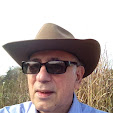This engrossing biography is about one of the geniuses of the last century who is in a pantheon along with Thomas Edison, Henry Ford, and, perhaps, a few others.
His genius was comprised of
two aspects worth exploring: his unusual psyche and his innovative/forward thinking.
First was his irascible and erratic psyche/personality. If he didn't like your opinion, suggestion or the design and prototype you were working on, he could and would often lash out at you in front of others by saying this "sucks" along with other derogatory terms.
He was quick and summary in his judgments, which most of the time were accurate and on target.
It would take an equally strong personality to stand up to Jobs and convince him that you were on the right track and a few of his associates were not intimidated by his unpredictable outbursts. The latter would go on to earn his respect and build up his team.
Jobs was always interested in hiring and surrounding himself with A team players--people of talent and energy to express that talent.
His teaming up with Steve Wozniak is a perfect illustration of Jobs working one-on-one with an engineering genius. Together the duo would go on to build the early Apple computers culminating in the Macintosh.
He operated in what has been called the
reality distortion field. This is a term borrowed from the "Menagerie" episodes of
Star Trek "in which aliens create their own new world through sheer mental force." (118). What this means is that once you came under the charismatic, indomitable will of Jobs, you were forced to change your thinking and side with his view of reality.
By this stretching and manipulating reality, Jobs was able to push his team to meet deadlines for product introduction that the team thought impossible.
He forced them to think out of the box.
The second aspect of his genius was his obsessive lifelong belief in the integration of hardware and software. (Jobs was a master- a perfectionist- of design and would pour over dozens of shapes before he would chose the right one for a new product).
Unlike Bill Gates of Microsoft, he would not allow other hardware manufacturers the right to use Apple's software system.
It is this tight control of content (music, photos, etc) hardware (iphone, ipod and ipad, MacBook Air MacBook Pro, etc) and software (OSX, Leopard, etc) that allowed the syncing of all Apple devices; this, in turn, propelled the sales of all Apple products (including shared revenue streams) from its itunes library to down loading apps, books and magazines for its iPad.
To summarize: one of the major themes of the book is that Apple has become the number one company in the US because of the driving, obsessive, compulsive personality
and integrative
thinking of its co-founder Steve Jobs.
But, will Apple continue to thrive without Jobs to lead?







